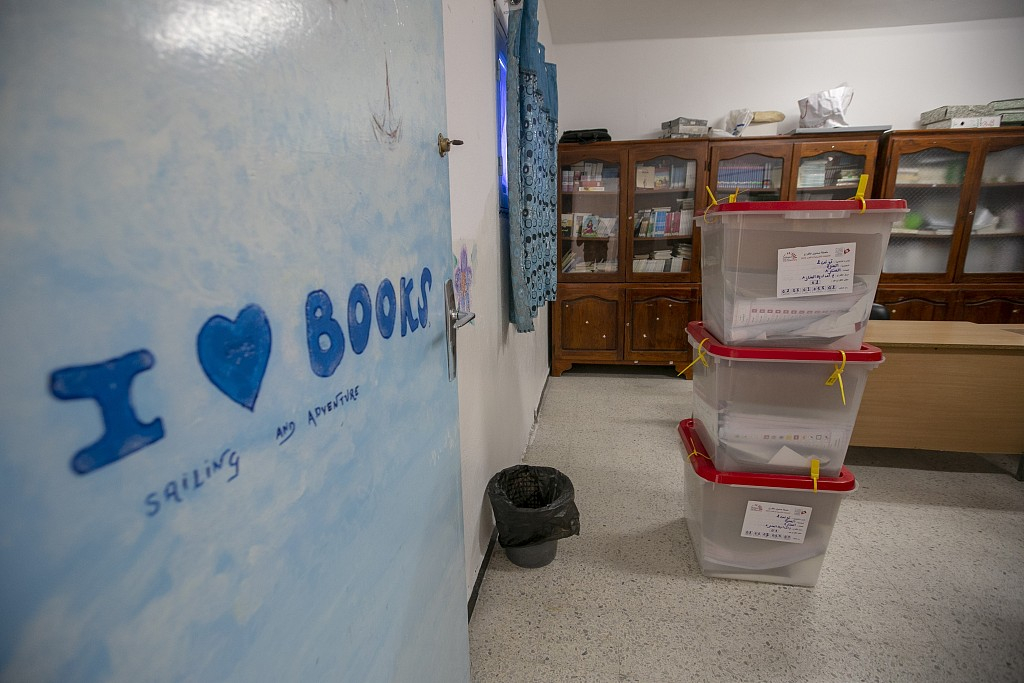Tunisian presidential candidate Kais Saied announced Saturday that he was quitting campaigning, in order to avoid an unfair advantage over his jailed opponent Nabil Karoui.
"I will not personally campaign on moral grounds, to avoid any doubt over the fairness between the candidates," Saied wrote on his Facebook page.
An independent professor of law, Saied won the first round of voting on September 15 with a low-budget grassroots campaign conducted largely via Facebook. He remained low-key after the vote, avoiding some television appearances.
His rival, media mogul Karoui, has been under investigation since 2017 for money laundering and tax evasion and was arrested on August 23, a week before the campaigning started for the first round presidential vote.
With the run-off vote scheduled for October 13, Tunisia's president, the United Nations, international observers and numerous politicians have called for "equal opportunity" between the two candidates.

Ballot boxes and election materials at a polling station in Tunis, Tunisia, October 5, 2019. /VCG Photo
Ballot boxes and election materials at a polling station in Tunis, Tunisia, October 5, 2019. /VCG Photo
Interim president Mohamed Ennaceur warned Friday that Karoui's detention was "an abnormal situation that could have serious and dangerous repercussions on the electoral process."
The United Nations called for "peaceful and transparent" elections.
Karoui accuses his political rivals, notably the Islamist-inspired Ennahdha, of politicizing the judicial process.
His supporters have raised the possibility of appealing the outcome if Karoui isn't elected.
Saied nonetheless stressed his "deep conviction that equal opportunities must also include the means available to both candidates," referring to Karoui's media and financial empire mobilized for his campaign.
Karoui has campaigned via Nessma, the leading private television channel that he founded, and through his wife Salwa Smaoui, who has given interviews to local and international media.
Source(s): AFP